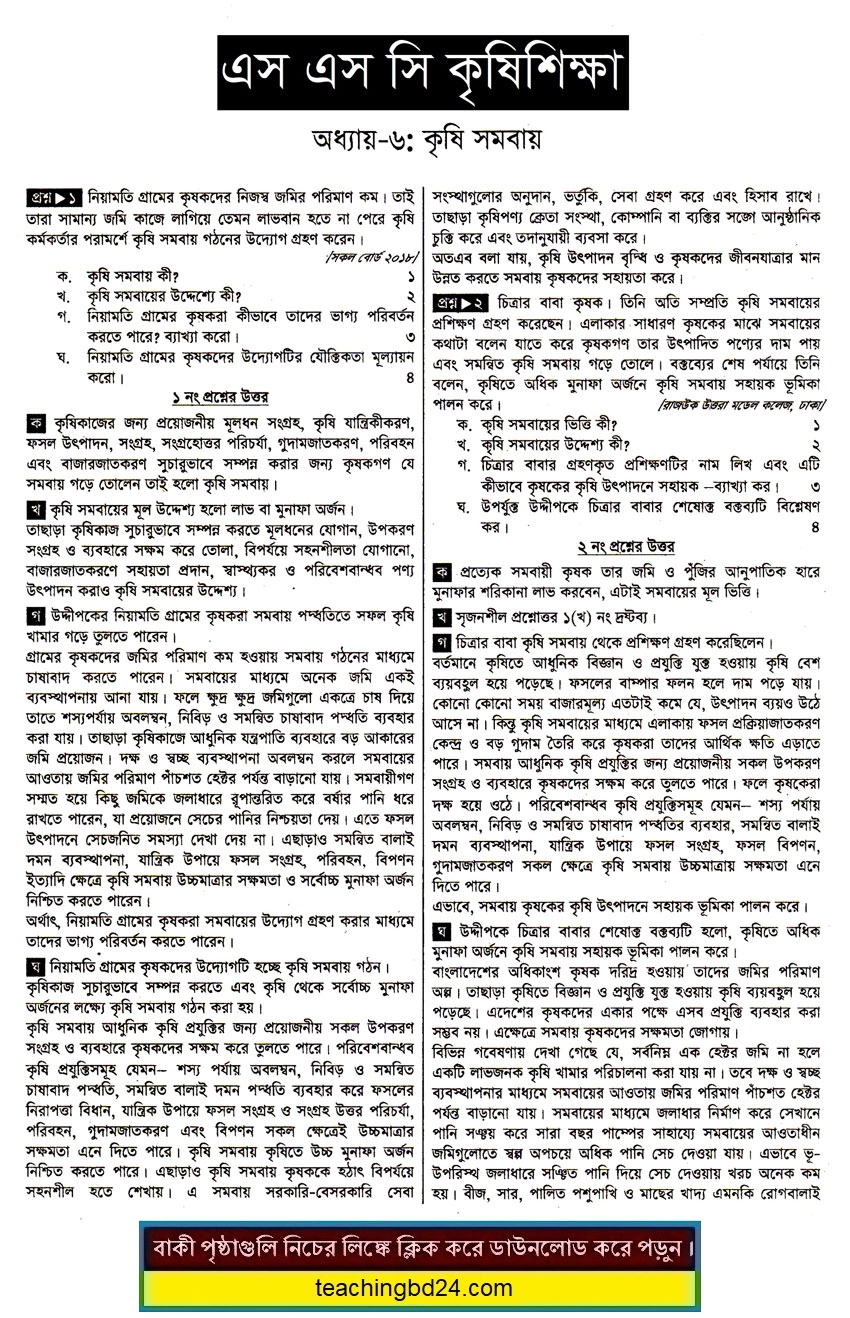Chapter 6. Agricultural Co-operatives
Chapter 6. Agricultural Co-operatives. Doing any work in a group to achieve similar objectives is called cooperative. For necessary capital collection the members of the co-operatives can perform agricultural works, agricultural mechanization, crop production, crop harvesting, post-harvest operations, storing, transportation and marketing to be completed smoothly by the members of the co-operative the limited numbers of farmers can get united and with their common conscious to form an agricultural co-operative.
Chapter 6. Agricultural Co-operatives

Cooperative is an occupational organization of a farmer’s own. The state accepts and helps this type of organization. If this type of co-operative is formed in accordance with the traditional co-operative law of the country it can get registration under co-operative law. We shall discuss agricultural co-operatives in this part.
An agricultural cooperative, also known as a farmers’ co-op, is a cooperative where farmers pool their resources in certain areas of activity.
An agricultural cooperative, also known as a farmers’ co-op, is a cooperative where farmers pool their resources in certain areas of activity. A broad typology of agricultural cooperatives distinguishes between ‘agricultural service cooperatives’, which provide various services to their individually farming members, and ‘agricultural production cooperatives’, where production resources (land, machinery) are pooled and members farm jointly. Examples of agricultural production cooperatives include collective farms in former socialist countries, the kibbutzim in Israel, collectively governed community shared agriculture, Longo Mai co-operatives, and Nicaraguan production co-operatives.
The default meaning of ‘agricultural cooperative’ in English is usually an agricultural ‘service’ cooperative, which is the numerically dominant form in the world. There are two primary types of agricultural service cooperatives, ‘supply cooperative’ and ‘marketing cooperative’. Supply cooperatives supply their members with inputs for agricultural production, including seeds, fertilizers, fuel, and machinery services. Marketing cooperatives are established by farmers to undertake transportation, packaging, distribution, and marketing of farm products (both crop and livestock). Farmers also widely rely on credit cooperatives as a source of financing for both working capital and investments.
Cooperatives as a form of business organization are distinct from the more common investor-owned firms (IOFs). Both are organized as corporations, but IOFs pursue profit maximization objectives, whereas cooperatives strive to maximize the benefits they generate for their members (which usually involves zero-profit operation). Agricultural cooperatives are therefore created in situations where farmers cannot obtain essential services from IOFs (because the provision of these services is judged to be unprofitable by the IOF’s), or when IOFs provide the services at disadvantageous terms to the farmers (i.e., the services are available, but the profit-motivated prices are too high for the farmers).
The former situations are characterized in economic theory as market failure or missing services motive. The latter drives the creation of cooperatives as a competitive yardstick or as a means of allowing farmers to build countervailing market power to oppose the IOFs. The concept of competitive yardstick implies that farmers, faced with an unsatisfactory performance by IOFs, may form a cooperative firm whose purpose is to force the IOFs, through competition, to improve their service to farmers.
teachingbd24.com is such a website where you would get all kinds of necessary information regarding educational notes, suggestions and questions’ patterns of school, college, and madrasahs. Particularly you will get here special notes of physics that will be immensely useful to both students and teachers. The builder of the website is Mr. Md. Shah Jamal Who has been serving for 35 years as an Asst. Professor of BAF Shaheen College. He expects that this website will meet up all the needs of Bengali version learners /students. He has requested concerned both students and teachers to spread this website home and abroad.


